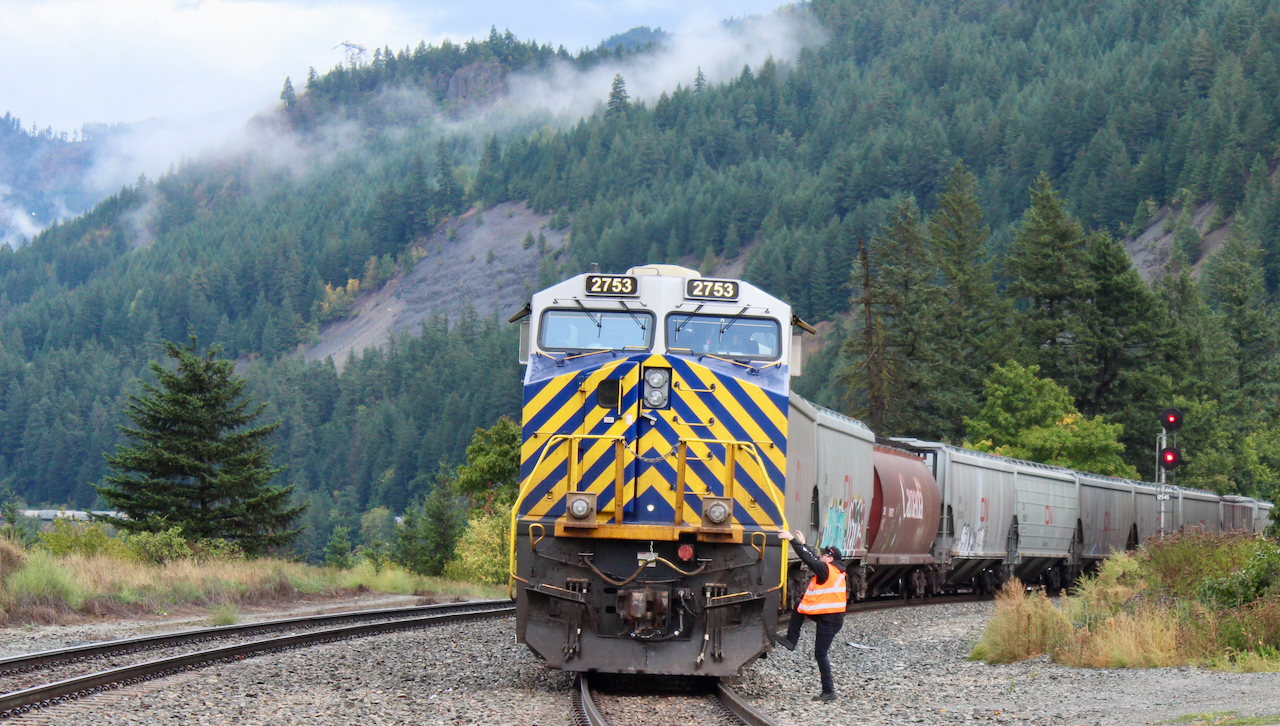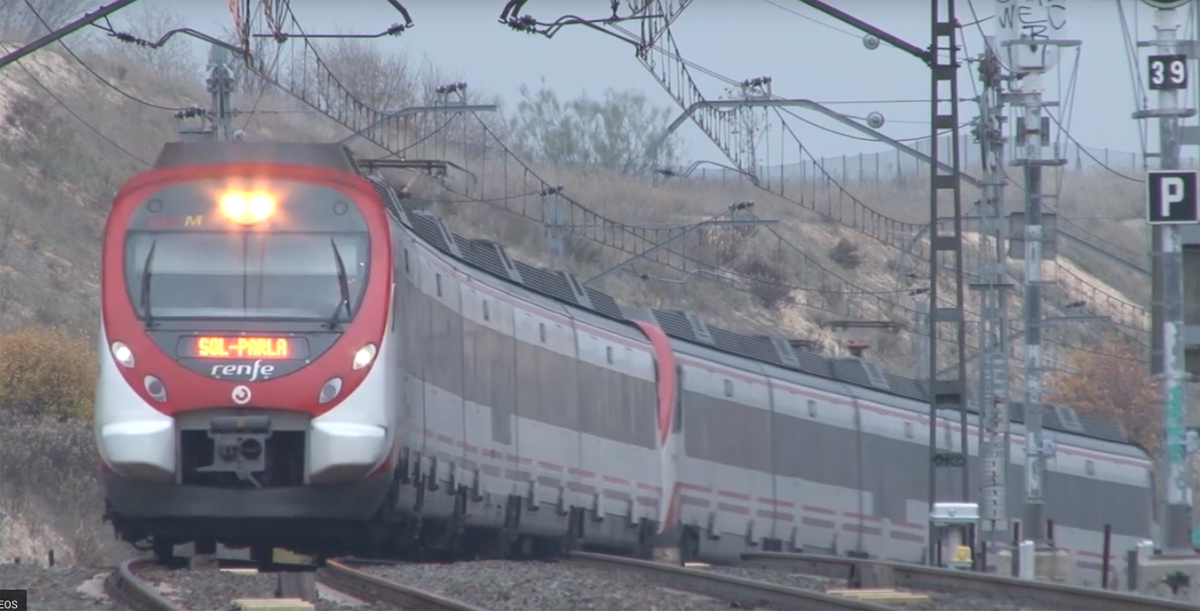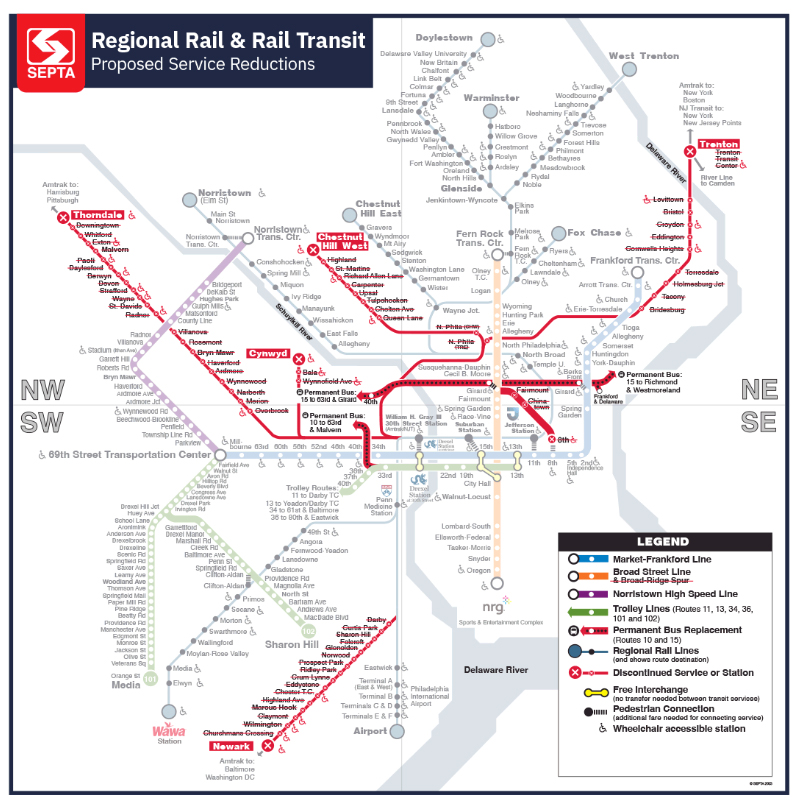
MONTREAL — Canadian National’s third-quarter profits tumbled on lower freight volume, the railway reported today, but most business segments are bouncing back.
“I believe we’ve seen the bottom on volumes,” CEO Tracy Robinson told investors and analysts on the railway’s earnings call this afternoon.
CN’s third-quarter operating income sank 21%, to $1.5 billion, as revenue fell 12%, to $3.9 billion. Earnings per share declined 21%, to $1.69. The railway’s operating ratio rose 4.8 points to 62% for the quarter.
Volume was down 10% when measured by carloads or 5% based on revenue ton-miles, the preferred metric of the Canadian railways. Intermodal loads fell 23%, partly due to the nearly two-week Pacific dockworkers strike in July and an overall slowdown in import activity.
But freight volume improved as the quarter went along, prompting CN to forecast continued strength in all business segments except for forest products, U.S. coal, and international intermodal.
After the dockworkers strike at Vancouver and Prince Rupert, British Columbia, CN saw its Canadian-bound container volume rebound. But the volume of containers bound for U.S. destinations — which were diverted to U.S. West Coast ports during the strike — has not returned to prior levels. Executives say it might take a year for the volume to return to Vancouver and Prince Rupert.
CN had strong and consistent operations in the quarter despite the worst forest fire season in Canadian history, flooding in both eastern and western Canada, and the port strike.
“Our railroad continues to run very well. It is the test of our operating plan that we can maintain our fluidity, our velocity, and our customer service levels through different and challenging conditions,” Robinson says.
“We’ve demonstrated the ability to recover quickly,” she adds.
Outgoing Chief Operating Officer Ed Harris, who is retiring next month, credited his replacements, Derek Taylor and Patrick Whitehead, for creating and running the operating plan.
“It was tough operating out there in quarter three. We started out by dealing with the two-week port strike on the West Coast and then faced constant disruptions from forest fires and flooding until September,” Harris says. “Running to a plan makes all the difference. For instance, we had a two-day outage on our main line east of Edmonton in the quarter. In the past it would have taken us up to a week or more to get operations back in sync. This one took two days.”
CN’s on-time train originations improved two points to 89%. Car-miles per day, which reflects both average train speed and average terminal dwell, dropped 1% to 209. But local service performance averaged 90% or better, up from around 80% a year ago.
The railway is set up to handle heavier volumes in the fourth quarter, Harris says. “We decided not to furlough crews earlier in the year,” he says. “Now, with grain coming on strong, we’re seeing the benefit of that decision.”
Robinson says replacing Harris with two executives does not mean the chief operating role is being split. The new operating department structure, she says, “recognizes the equal importance and distinct nature … of building the plan and running the plan.”
Taylor will focus on executing the plan and improving operations as chief field operating officer, while Whitehead will focus on refining the operating plan as volumes fluctuate as well as developing a long-term capital plan to smoothly handle anticipated growth.
CN’s new Falcon Premium interline intermodal service run with Union Pacific and Ferromex has been growing since its launch in May, Chief Marketing Officer Doug MacDonald says. The cross-border service has landed STG Logistics container business, and CN expects to win business from more intermodal customers.
CN executives say they expect to see more cooperation on interline moves as railroads try to convert freight off the highway through service like Falcon Premium and CN’s new intermodal agreement with Norfolk Southern for Atlanta and Kansas City traffic. “We’ll conduct ourselves in a way as though we were a single carrier,” Robinson says.
Class I railroad operating teams are working to design faster service that can better compete with truck transit times, MacDonald says.
Strikes against the Big Three automakers as well as by St. Lawrence Seaway workers have yet to affect CN’s volumes. But CN is offering all-rail moves for grain and iron ore customers that currently rely on shipping via Great Lakes ports. The railway also has contingency plans to shift Montreal container traffic to Halifax, Nova Scotia, in the event that dockworkers go on strike in Quebec.













